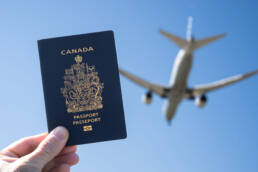Embassies and consulates play vital roles in facilitating diplomatic affairs and providing essential services to citizens of a foreign country. While the terms “embassy” and “consulate” are often used interchangeably, they represent distinct entities with specific functions. In this discussion, we will dive into the differences between an embassy and a consulate, shedding light on their unique responsibilities and highlighting why they are crucial to a country’s diplomatic presence abroad.
Embassies
An embassy serves as the official representation of a country’s government in another sovereign state. An embassy is typically located in the capital city of the host country and functions as the primary channel of communication between the two governments. Embassies are established to foster diplomatic relations, promote trade, and safeguard the interests of their home country.
Key Functions of an Embassy include:
- Diplomatic Relations: Embassies serve as the central hub for diplomatic exchanges and negotiations between the sending country and the host nation. Ambassadors, who are the highest-ranking diplomats, head the embassies and serve as official representatives of their governments.
- Consular Services: Embassies provide a wide range of consular services to their citizens living or traveling abroad. These services include issuing passports, visas, and travel documents, assisting in legal matters, providing emergency assistance, and supporting citizens during crises or natural disasters.
- Political & Economic Interests: Embassies gather and analyze political and economic information from the host country, helping their governments formulate foreign policies and promote bilateral trade and investment. They also facilitate cultural and educational exchanges, fostering mutual understanding and cooperation.
Consulates
A consulate is a secondary diplomatic mission established by a country within another country’s territory. Unlike embassies, consulates are usually located in major cities rather than the capital. Their primary function is to assist and provide services to citizens of the sending country who reside or travel within the consular district.
Key Functions of a Consulate include:
- Consular Services: Like embassies, consulates offer consular services to citizens of their home country. This includes issuing visas, renewing passports, registering births and deaths, and aiding in legal matters such as arrests, detentions, or repatriation.
- Trade and Commerce: Consulates play a crucial role in promoting trade and economic ties between their home country and the host nation. They facilitate business connections, offer information on investment opportunities, and support trade missions and delegations.
- Cultural and Public Diplomacy: Consulates often organize cultural events, exhibitions, and conferences to promote their home country’s culture, arts, and heritage within the host country. They facilitate educational and academic exchanges and encourage people-to-people connections to strengthen bilateral relations.
Key Differences
There are three key differences between embassies and consulates: location, hierarchy, and the scope of services provided.
First, embassies are located in the capital city of their respective host country, while consulates are typically situated in major cities. Secondly, embassies represent the highest level of diplomatic relations between two countries and are led by ambassadors, who serve as the official representatives of their governments. Consulates, on the other hand, are smaller in scale and operate under the authority of the embassy, with consuls leading their operations. And third, regarding the scope of service, embassies have a broader range of responsibilities, including diplomatic relations, consular services, and promoting political and economic interests, while consulates primarily focus on consular services, trade and commerce, and cultural diplomacy within their consular districts.
In summary, embassies and consulates may share similar objectives, but they differ in terms of their location, hierarchical structure, and scope of services provided. By recognizing and appreciating these differences, we can better understand the crucial roles played by embassies and consulates in international diplomacy and the vital services they provide to citizens living or traveling abroad.
If you would like to explore your U.S. immigration options, be sure to contact our office to schedule a consultation today!
Ready to have Berardi on your side?
Whether you’re a business looking to hire or a professional hoping to relocate, immigration law can be complicated. But you don’t have to do it alone. Put our experience to work for you.



